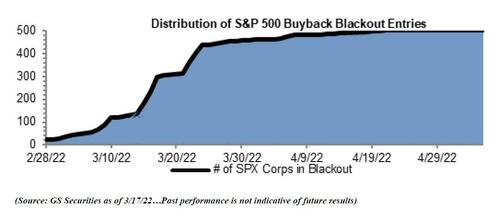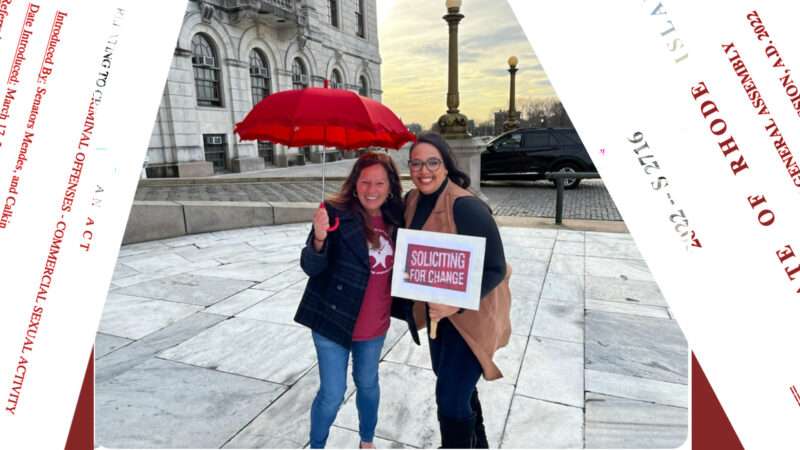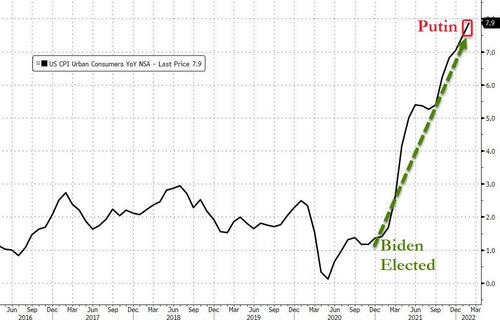From Thursday’s opinion in State v. Arbogast, written by Justice Barbara Madsen:
Arbogast testified that his wife of 48 years underwent surgery, after which sex became painful. Consequently, Arbogast began looking online for casual sexual encounters with other women. He responded to numerous personal ads, eventually leading to no-strings-attached sex.
Shortly after a successful casual encounter, Arbogast responded to an online ad posted by “Brandi,” an undercover Washington State Patrol officer. {The ad stated:
Mommy likes to watch—young family fun—420 friendly—w4m (Rich$land) Mommy luvs to watch family fun time. Looking for that special someone to play with. 100% I know this is a long shot but I have been looking for this for a long item [sic] and haven’t had any luck. looking for something real and taboo. If this is still up then I am still looking. send me your name and your favorite color so I know you are not a bot. I like to watch ddlg daddy/dau, mommy/dau mommy/son.
The abbreviation “w4m” means woman for man, “420 friendly” relates to cannabis, and “ddlg” is the abbreviation for daddy, daughter, little girl.}
After initial introductions were made, Brandi e-mailed Arbogast that she was “single and looking for some one that is open and free to new ideas.” Arbogast then asked Brandi specifically to tell him about herself. She explained that she started sleeping with her father when she was young, and that she wanted her “kids to experience the same closeness” and needed “a techer [sic] to help them with sex when they get older.” Brandi clarified that she had “lost [her] attraction to men” and was instead interested in “young boys about [her] sons [sic] age.” Arbogast responded that he was “probably a we [sic] bit older and … can be easy and exploring into everything you might desire. So if you want to try someone older, game on.” Brandi also stated that her family already had experience with a sexual teacher who moved away due to military commitments.
At this point in the conversation, Arbogast texted that he reread Brandi’s first e-mails and told her that he had not had sex with children and was interested in her.
E.g., id. at 3 (texts at 7:15:42 PM, 7:19:25 PM) (“just wanted to be with mom,” “[d]on’t known if [he] could help do kids,” and “never thought about that way”). Brandi replied that she was not looking for a partner for herself, but for her children. After texting that he had not tried young kids, Arbogast said had looked at young girls and would “like to try a young lady once.” Id. at 4 (text at 7:29:22 PM). Arbogast then texted that he did not think he could devote the time “necessary for this training” for the children and asked to meet with Brandi publicly for coffee to discuss it further. Id. (texts at 7:41:27 PM, 7:49:06 PM). Brandi reaffirmed that she was not looking for a partner herself and that she homeschooled the children, allowing her to keep their “secrets.” Id. at 5 (texts at 7:56:35 PM, 7:57:06 PM). Arbogast texted back: “And my secret as well if chosen.” Id. (text at 7:58:14 PM).
Brandi and Arbogast then exchanged photos. Arbogast texted that he wanted to give Brandi “TLC [(tender loving care)].” Id. at 5 (texts at 8:16:57 PM, 8:20:02 PM). Brandi answered that she “could get inv[ol]ved with [Arbogast] and [J]ake [(her son)] after a few good sessions of you two but [was] not into it” and asked Arbogast to “change [her] mind about us hooking up?” Id. (texts at 8:21:35 PM, 8:22:26 PM). In response, Arbogast stated, “OK you mean I need to groom the boy alone? What about your princess[?]” and “Never have done kids before.” Id. at 6 (texts at 8:23:47 PM, 8:24:12 PM). After exchanging another series of texts discussing how frequently Arbogast would meet with the children, he texted “we should meet and try it out.” Id. (text at 8:31:00 PM). Brandi outlined the rules, saying there could be no pain, no anal penetration, condoms were required, he would stop when asked, and he could not get the daughter pregnant. The rules also required Arbogast to come to her home and when he arrived “we all get naked.” Id. (text at 8:36:34 PM). Arbogast agreed, stating that he was sterile and looking for oral and regular sex. Minutes later, Arbogast repeated that he was interested in Brandi romantically, but she clarified that she would not be involved.
Brandi texted that they should meet soon so that she would be “less cautious its [sic] not a set up,” and she suggested that Arbogast come over to her apartment that night. Id. at 8 (texts at 9:00:05 PM, 9:06:18 PM). Brandi instructed Arbogast to bring condoms and lubricant, and said that she had to prepare the children. Arbogast again responded that he “[had] not done this before” but “[c]ould do almost anything without penetration.” Id. at 9 (text at 9:19:42 PM). When Brandi asked if Arbogast wanted the daughter or son or both, he responded he wanted the daughter dressed in “[j]ust under things” and would perform and receive oral sex. Id. at 9-10 (texts at 9:21:40 PM, 9:22:34 PM, 9:25:17 PM, 9:26:18 PM, 9:27:15 PM, 9:28:14 PM).
On arriving at the apartment, Arbogast was arrested. He did not have condoms or lubricant; he agreed to speak with the detectives, allowing them to search his phone and car. Arbogast was interrogated at the apartment site and took a polygraph examination. The polygraph indicated that Arbogast showed no deception when he answered he had no previous sexual contact with anyone under the age of 16. Arbogast’s phone showed no evidence of child pornography or that he sought sex with children in the past.
Arbogast was charged with two counts of attempted child rape in the first and second degree. In pretrial motions, Arbogast sought to admit the results of his polygraph on the question of whether he had ever tried to engage in sexual contact with children and to call the officer who administered the test as an expert witness, as relevant to entrapment. Alternatively, Arbogast argued the polygraph should be admitted to determine only whether an entrapment instruction was allowed. The motions were denied because the State was unwilling to stipulate to the admissibility of the polygraph. Arbogast also sought a jury instruction on entrapment. The court reserved that motion for resolution at trial.
In its own pretrial motions, the State sought to prohibit any mention of Arbogast’s lack of criminal history. The court agreed, finding it was premature until Arbogast presented evidence of government inducement or luring, another requirement of entrapment.
At trial, Arbogast testified that he never intended to have sex with children. Arbogast responded to the online ad because he wanted a casual sexual encounter with an adult woman. Arbogast had previously met with a woman before in response to such an ad. Despite Brandi’s put-offs, Arbogast testified that he thought he could persuade Brandi and so continued to play along, indicating interest in the children only to get on the mother’s good side. Despite acknowledging the conversation with Brandi concerned sex with her children, Arbogast maintained that he did not intend to act on his statements. A police officer who had spoken to Arbogast after his arrest testified that Arbogast said he intended “be with the children,” but admitted on cross-examination that it was unclear whether Arbogast meant to have sex with the children or just be present with them.
At the conclusion of its case, the State argued an entrapment instruction was not justified because Arbogast failed to show government inducement and a lack of predisposition by a preponderance of the evidence. The court agreed, concluding that there was some evidence to support luring but no more than normal. The court therefore denied the entrapment instruction and precluded evidence showing the absence of a criminal record to show lack of predisposition.
A jury convicted Arbogast of both counts of attempted child rape. He received a standard range sentence of 90 and 76.5 months respectively for the two charges, to be served concurrently.
The Washington Supreme Court majority applied the Washington entrapment statute, which provides:
(1) In any prosecution for a crime, it is a defense [that defendants must prove by a preponderance of the evidence] that:
(a) The criminal design originated in the mind of law enforcement officials, or any person acting under their direction, and
(b) The actor was lured or induced to commit a crime which the actor had not otherwise intended to commit.
(2) The defense of entrapment is not established by a showing only that law enforcement officials merely afforded the actor an opportunity to commit a crime.
And the majority concluded that there was enough evidence of entrapment that the jury should have been instructed to consider the defense and decide whether the elements were met:
Inducement evidence may be based on persuasion, fraudulent representations, threats, coercion, harassment, promises of reward, pleas based on need, and sympathy or friendship. Inducement asks whether police went beyond simply providing a defendant with the opportunity to commit the offense.
In this case, the trial court found Brandi’s statement that she could get involved with Arbogast after some sessions with her child constituted evidence of luring by offering a reward for engagement in the illegal behavior. However, the court was convinced that the police engaged in only a “normal amount of persuasion.” But, that is a jury question. United States v. Poehlman (9th Cir. 2000), is a similar “sexual mentor” case. There the defendant visited online discussion groups looking for a companion. The defendant responded to an ad from an undercover officer posing as a mother in search of someone to fill her family’s “unique needs.” The mother first suggested that the defendant develop a relationship with her children. She relayed her own sexual education with a teacher and sought the same experience for her children. The Ninth Circuit concluded that the defendant was induced to commit the crime of engaging in sex acts with a minor, noting that he was originally interested in a relationship with the mother, who explained over the course of their communication that sex with her children was required for her continued interest.
Poehlman recognized that parental consent is no defense to rape, but it “can have an effect on the ‘self-struggle [to] resist ordinary temptations.'” Consent, characterizing the activity as a part of parents’ responsibility to their children, and selecting a sexual teacher as an expression of confidence can allay a defendant’s fears that an act is harmful, distasteful, or inappropriate….
As in Poehlman, it was the undercover officer Brandi, rather than Arbogast, who first raised the idea that he be a sexual mentor to children. In their initial exchange of messages, Brandi brought up her own sexual history, explaining that she began sleeping with her father when she was young and her mother understood this sexual relationship. Brandi wanted the same “closeness” for her children, prompting her to find another sexual teacher for them. Discussing her past experience and offering that another man had already served as a teacher, Brandi arguably validated what she was offering to Arbogast—a taboo and illegal sexual relationship. She explained that she sought someone who understood her children’s sexual needs regardless of society’s acceptance, attempting to dispel fears Arbogast may have had that the activities would be inappropriate.
Additionally, like the defendant in Poehlman, Arbogast continually stated that he was looking for an adult relationship. Brandi opened their conversation by telling Arbogast that she was single and looking for someone open to new ideas. Arbogast responded by asking Brandi to tell him about herself. When presented with the idea of having sex with children, Arbogast said that he had never done so: “Never have done that. I just wanted to be with mom. Don’t know if I could help do kids.” He also stated that he could not devote enough time for sexual training and asked to meet with Brandi publicly to discuss it. In the midst of their text messages, Arbogast told Brandi specifically that he wanted to give her “TLC.” Though Brandi repeated that she was not interested in a sexual relationship for herself, she raised the possibility that she “could get involved with [Arbogast] and [J]ake [(her son)] after a few good sessions of you two.” Again, similar to Poehlman, Brandi made sex with her children a condition of her interest in Arbogast. According to Arbogast, he engaged in that discussion as “BS-ing” with Brandi and “going with the flow” in order to eventually have sex with her.
Inducement is not merely government presentation of an opportunity to commit a crime. There must be opportunity “plus” something else, such as excessive pressure placed on the defendant. Yet “even very subtle governmental pressure, if skillfully applied, can amount to inducement.” Here, as in Poehlman, a jury could conclude that the police induced Arbogast to commit the charged crime….
Here, the police created and executed the online sting operation, providing some evidence to satisfy the first requirement of an entrapment defense. Arbogast also presented evidence that Brandi induced him to commit a crime that he was not predisposed to commit, satisfying the luring element of the defense. This evidence satisfies the required quantum of proof to obtain an entrapment instruction.
Justice Mary Yu, joined by Chief Justice Steven Gonzalez, dissented:
The evidence shows only “a normal amount of persuasion” coupled with “[t]he mere use of a decoy or informer to present an individual with an opportunity to commit a crime,” which “does not in itself constitute entrapment.” …
Arbogast contends he was induced to commit the attempted rape of two children because “Brandi,” the fictional children’s purported mother, allegedly conditioned Arbogast’s sexual relationship with her on Arbogast’s sexual assault of her children. However, he did not produce any evidence to support this contention. To the contrary, when Arbogast texted Brandi to say, “I just wanted to be with mom,” Brandi promptly responded, “[T]hanks for not wasting our time. I am not looking for me. I am looking for someone to be with my kids. [G]ood luck with what it is you seek.” Brandi did not condition sex with her on the sexual assault of her children; she unequivocally told Arbogast that she would not have sex with him.
Nevertheless, Arbogast continued to text Brandi, telling her that although he had “not tried young kids” before, he “[w]ould like to try a young lady once.” After some further discussion about arranging for Arbogast to sexually assault the children, it was Arbogast, not Brandi, who again raised the possibility of an adult sexual relationship, asking, “You sure you don’t need some [TLC]?” It was only at this point that Brandi suggested she “could get involved with [Arbogast] and [J]ake [(her 13-year-old son)] after a few good sessions of you two,” but she repeated that she was “not into it,” and did not “want to take away from [the] kids[‘] exper[ie]nce.”
Thus, even when Brandi attempted a normal degree of persuasion by suggesting she might eventually have some involvement with Arbogast, she did not offer a sexual relationship with her on the condition that Arbogast first sexually assault her children. Instead, Brandi made it clear that all of Arbogast’s sexual relations with her family would involve at least one of her children. And when it appeared to Arbogast that he would “need to groom the boy alone,” Arbogast immediately asked, “What about your princess,” meaning Brandi’s 11-year-old daughter. Brandi assured Arbogast that her daughter “is very curious and is in the prime time to learn.”
Brandi and Arbogast discussed the “rules” that would apply to Arbogast’s sexual assault of the children, which Arbogast readily agreed to, and then Brandi sent Arbogast a photograph of her fictional family. Arbogast said, “I’m in if you want an old guy,” and Brandi again reiterated, “[I] have to be clear [I] am not involved … [I] don[‘]t want you to be disappointed and especially don[‘]t want my kids disappo[i]nted.” Arbogast agreed.
This is not a case in which the jury must make a credibility determination based on conflicting evidence. The recorded text message exchange unequivocally shows that Brandi never conditioned Arbogast’s sexual relationship with her on whether Arbogast would sexually assault her children. Even after Arbogast agreed to assault the children, Brandi did not give any assurance that she would become involved with Arbogast. At the most, Brandi did not say no to Arbogast when he repeatedly initiated the possibility of a future relationship. This is not evidence of inducement. Rather, the police used permissible deception and artifice to present Arbogast with an opportunity to commit the crime of attempted child rape, which he took….
This case is not like Poehlman. Here, Brandi mentioned only once that she had experience with a sexual mentor, and she did not offer any “special incentive[s]” or “important symbol[s] of acceptance and friendship” to Arbogast. Moreover, the text message exchange between Brandi and Arbogast lasted “less than five hours,” unlike the “protracted,” “intimate,” months-long exchange at issue in Poehlman. Arbogast, like Poehlman, may have sought an adult relationship with an undercover police officer, but unlike the officer in Poehlman, Brandi did not “encourage[ ]” Arbogast’s “fantasies” about this adult relationship. The actions of the police in relation to Arbogast were far from the “aggressive intervention” the police used in relation to Poehlman.
The police offered Arbogast the opportunity to participate in the crime of attempted child rape, and he took it. This is not inducement….
The post Washington S. Ct. Reverses Attempted Child Rape Conviction, Remands for Retrial with Entrapment Instruction appeared first on Reason.com.
from Latest https://ift.tt/N7lf5Vn
via IFTTT






